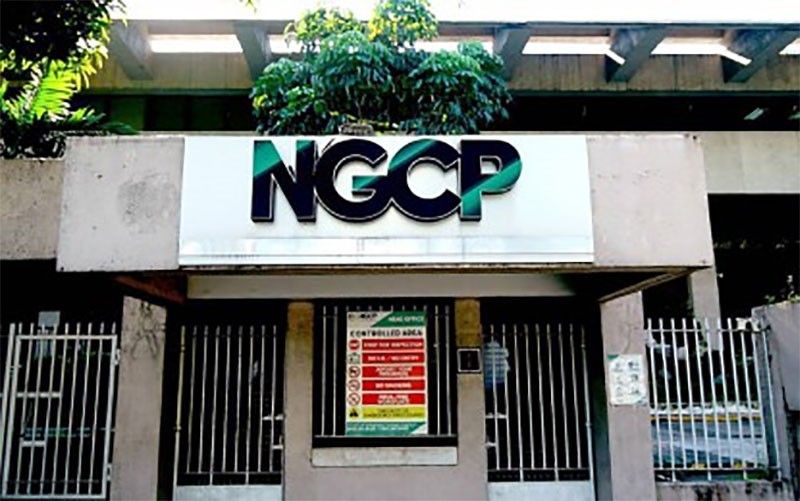
Upgrade to High-Speed Internet for only ₱1499/month!
Enjoy up to 100 Mbps fiber broadband, perfect for browsing, streaming, and gaming.
Visit Suniway.ph to learn
MANILA, Philippines — After falling short in the 19th Congress—approved by the House but stalled in the Senate—lawmakers are giving the minimum wage hike bill another shot, refiling it on the very first day of the 20th Congress."
Rep. Raymond Democrito Mendoza (TUCP Party-list) refiled on Monday, June 30, the same P200 wage hike bill that stalled in the previous Congress, where neither the House nor Senate agreed to a bicameral conference or adopted the other’s version.
The House passed its version of the minimum wage hike bill on third and final reading just a week before the 19th Congress adjourned for the final time, while the Senate approved its separate P100 wage hike measure in 2024.
The P200 wage hike bill, formerly House Bill 11376, has been refiled under House Bill 88.
Make it a priority. To fast-track the process, Mendoza invoked Section 48 of the House rules, which allows bills that were approved on third reading in the last Congress to skip committee deliberations if refiled and approved by a majority vote as “matters already reported.”
“This is only right and proper as we feel and believe that the P200 legislated wage hike must be immediately taken up by the 20th Congress as its first and foremost priority,” the explanatory note read.
Regional wage boards. Nearly four decades have passed since the last legislated wage hike. In its place, regional wage boards determine minimum wage increases based on localized studies and consultations, anchored on the assumption that living costs and productivity largely differ by region.
The problem labor groups see, however, is that wage hikes are modest at best. They typically range from P20 to P50 and occur just once or twice a year. Mendoza has referred to them as mere “spare change.”
The latest example is in Metro Manila, where the NCR Regional Tripartite Wages and Productivity Board approved on Monday a P50 daily wage increase. This brings the rate to P695 for non-agricultural workers and P658 for agricultural workers.
The most recent increases before this were P35 in July 2024 and P40 in June 2023, showing a once-a-year hike.
RELATED: P50 minimum wage hike approved for NCR
Is the P50 increase enough?
Mendoza was dismayed over the P50 minimum wage increase in the capital region, despite it being higher than in the past years, as it is only a quarter of the House's proposed bill and half of the Senate’s version.
However, for the Philippine Chamber of Commerce and Industry (PCCI), the P50 increase to daily pay is actually “large enough.”
“Ang gobyerno, alam nila na the P50 [increase], and the private sector, dumaan sa atin ang pinagusapan ng tatlong party and we agree. We just have to live with it,” PCCI Chairman-Emeritus George Barcelon told dzBB on Tuesday, July 1.
(The government, they know that the P50 [increase], and the private sector too, this was discussed among the three parties, it went through us, and we agreed. We just have to live with it.)
Meanwhile, Employers Confederation of the Philippines President Sergio Ortiz-Luis Jr. told dzRH on Tuesday that the P50 wage hike effectively comes with a 30% increase, as it also raises costs for social contributions like PhilHealth, SSS and Pag-IBIG, along with overtime pay and bonuses.
Mendoza, citing IBON Foundation, argued that minimum wages are nowhere near the P1,200 daily living wage needed for a family to live decently. In some regions, workers earn less than P400 a day, even though cost-of-living gaps between regions are narrowing.
“Since the regional wage boards turn a blind eye to the need for simple decency, we strongly suggest they review their wage-setting parameters to conform and align with the Constitutional guarantee of a living wage,” Mendoza said in a statement.
“Meanwhile, Congress will do what it must, and what the broad majority expect it to do, pass the P200 wage hike bill,” he added.
Why the wage hike bill died
In a last-ditch effort on June 11, the Senate asked the House to adopt its P100 wage hike bill, warning that with time running out, the push for a legislated increase might collapse entirely.
Senators opposed the House’s P200 version, arguing it was too high and could lead to inflation or job losses as suggested by employer associations, business groups and some economists.
“Any increase in cost of production on cost of service it’s being passed over to the consumer,” Barcelon said, explaining that a large portion of businesses that could potentially be affected by a wage hike would be micro, small and medium enterprises (MSMEs).
The proposed measures, however, take this into account. They include a provision requiring the government to assist small enterprises by offering incentives.
Congress may also deliberate on whether to expand this support and determine the extent of assistance needed to help businesses cushion the impact of complying with a wage hike.
“Pero anong mangyayari, kapag mataas masyado ang tinaas [ng wages], ang gagawin ng mga employers hahabulin ‘yan [at] tataas ‘yung presyo nila. … So sino apektado?” Ortiz-Luis Jr. said.
(But what happens when the wage increase is too high? Employers will try to make up for it by raising their prices. So who ends up affected?)
The House, however, insisted that a bicameral conference is necessary to exhaust all means in ensuring any final wage hike would be sufficient for the country’s nearly five million minimum wage earners.
Even the National Wage Coalition, which sensed the clock ticking down, threw its support behind the Senate version and urged the House to do the same.
However, this did not pan out as the lower chamber strongly believed workers could get more than P100.
What's next?
In the Senate, Sen. Robin Padilla filed a similar measure on Monday, proposing a P150 minimum wage hike for private sector workers — a middle ground between the earlier P100 Senate proposal and the House’s P200 version.
Now that the minimum wage hike bills have been refiled, the next thing to watch out for is whether Congress will prioritize them and how quickly they’ll progress.
RELATED: City, province workers get different pay for same work. Why labor groups say it's unfair

 9 hours ago
1
9 hours ago
1



